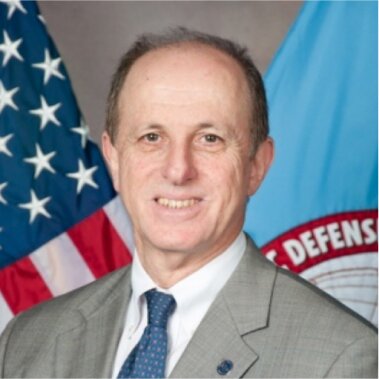Luis Kun
rjscouceiro2019-01-10T16:11:49+00:00
Keynote Speaker
Dr. Kun graduated from the Merchant Marine Academy in Uruguay and holds a BSEE; MSEE and Ph.D. degree all from UCLA. A (Lifetime) Fellow of the IEEE, the American Institute for Medical and Biological Engineering, and the International Academy of Medical and Biological Engineering. He is a Distinguished Professor Emeritus of National Security Affairs (CHDS) and was Professor of Homeland Security at the National Defense University (2003-2015). He is Editor in Chief of Springer's Journal of Health and Technology. He spent 14 years at IBM; was Director of Medical Systems Technology at Cedars Sinai Medical Center. As Senior IT Advisor to AHCPR he formulated the IT vision and was the lead staff for High Performance Computers and Communications program and Telehealth. In July 1997, as invited speaker to the White House, he was largely responsible for the first Telemedicine Homecare Legislation signed by President Clinton, August 1997. Represented the DHHS Secretary at a Forum of Health Care Ministers on Telecommunications and the Health Care Industry in Mexico. While a Distinguished Fellow at the CDC, as Acting Chief IT Officer for the National Immunization Program he formulated their IT vision on 10/2000. Kun received many awards including: AIMBE's first-ever Fellow Advocate Award in 2009; IEEE-USA Citation of Honor Award, "For exemplary contributions in the inception and implementation of a health care IT vision in the US." 2011 Golden Core Award by the IEEE CS. Named: "Profesor Honoris Causa" Favaloro University, (Argentina); "Distinguished Visitor" by City of Puebla, Mexico (2013). He is/was in the IEEE Distinguished Visitor Program for the CS, Distinguished Lecturer for the EMBS and the DL SSIT Chair. (2014) Honorary Professor of the Electrical Engineering Dept. at the School of Engineering of the University (UDELAR) in Montevideo, Uruguay. He received the Medal of Merit on October 20, 2016 in Mexico by the National Unit of Engineering Associations and named Visiting Professor by the National Technological University of Buenos Aires, Argentina, November 2017.
Abstract
Advances in computing, information and communications technology provide a unique opportunity to develop mechanisms that may lower the cost of healthcare through prevention while improving the quality of life. Prevention of non-communicable disease will require the use of intelligent agents to alert individuals of potential risks based on their DNA, and available solutions to decrease those risks altogether. Another form of prevention could be done by: silencing, activating or editing genes; disactivating cancer cells; and or correcting genetic defects. Prevention of communicable diseases will require the effective use of information and communication networks to alert the population, while neutralizing mosquitos of Malaria, Dengue, West Nile Virus or Yellow Fever; neutralizing infections, virus, HIV, etc., can also play a major role. Shifting from a disease centric system to one that focuses on wellness, requires a strategy on prevention since many ethical issues are raised by the potential uses of these new technologies. Our US (electronic) health records for example, are islands of information not fully accessible, integrated or interoperable. Semantically speaking we are addressing multiple different types of prevention. Medical errors, such as surgical site infections account for as many as 300 K cases per year in the US. Preventable medical errors are the third leading cause of death (440,000) in the United States, after heart disease and cancer.

